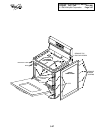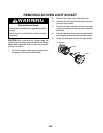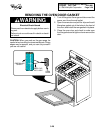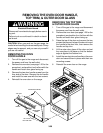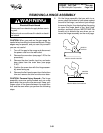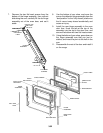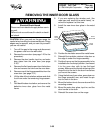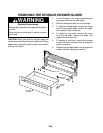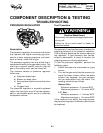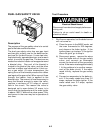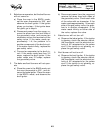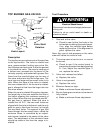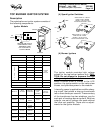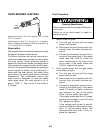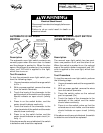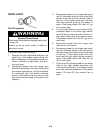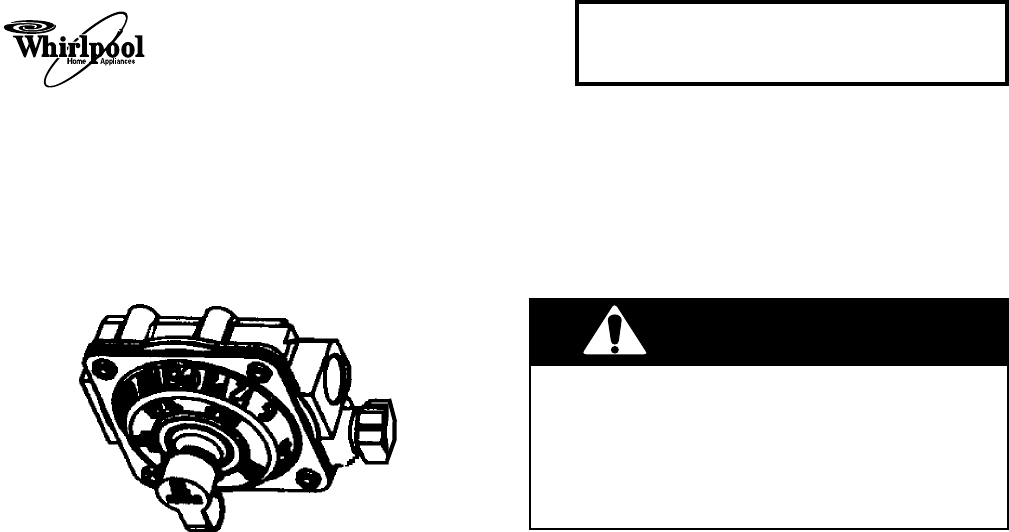
Page 4-1
4-1
Cooking Products Service Manual
Original July, 1996
4321891
© 1996 Whirlpool Corporation
COMPONENT DESCRIPTION & TESTING
TROUBLESHOOTING
PRESSURE REGULATOR Test Procedure
Electrical Shock Hazard
Disconnect from electrical supply before ser-
vicing unit.
Failure to do so could result in death or
electrical shock.
WARNING
Description
The pressure regulator is a mechanical device
that reduces the higher incoming gas pres-
sure to a lower outgoing pressure, and main-
tains a steady, even flow of gas.
The pressure regulator has one outlet that is
connected directly to the gas safety valve. The
inlet has a manual shutoff valve so that the
gas to the safety valve can be turned off.
The common causes of pressure regulator
failure are:
a) Ruptured diaphragm.
b) Broken or weak valve.
c) Accumulated debris around the valve
seat.
d) Plugged vent.
The pressure regulator is normally replaced
rather than serviced, since it has few replace-
able or serviceable parts, and is a relatively
inexpensive device.
Occasionally it may be necessary to adjust the
outgoing pressure of the pressure regulator.
This is done by adjusting the tension spring of
the regulator. A gas pressure test device,
called a manometer, is used to monitor the
outgoing pressure during adjustment.
To test the pressure regulator, perform the
following steps:
1. Attach one side of a manometer to a gas
source.
2. Turn on the gas and allow the pressure to
move the water column. When the water
column has stopped, the gas pressure
can be determined from the scale. The
reading should be as follows:
Natural Gas:
Minimum pressure = 5-inches WCP
Maximum pressure = 14-inches WCP
L.P. Gas:
Minimum pressure = 11-inches WCP
Maximum pressure = 14-inches WCP
If the reading is not within the range shown,
the pressure regulator is defective and should
be replaced.



